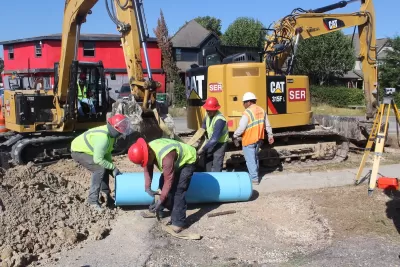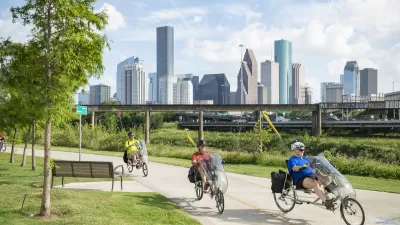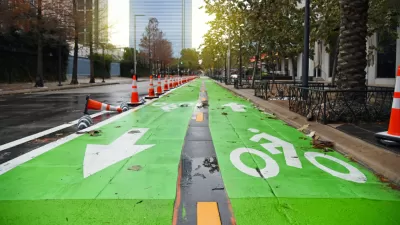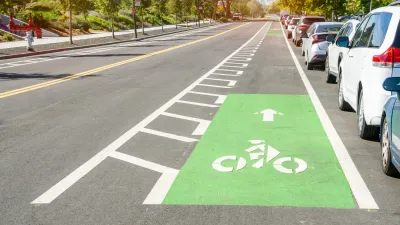Mayor Whitmire reversed his support for a planned road safety project that includes lane reductions, putting $40 million in federal funding in jeopardy.

Houston Mayor John Whitmire is threatening to derail a major road redesign project due to his recent opposition to vehicle lane reductions and bike infrastructure, reports Adam Zuvanich for Houston Public Media. “would rehabilitate the aging roadways, provide stormwater drainage improvements, bolster safety by reducing the incidence of fatal crashes and better accommodate pedestrians, cyclists and mass transit users.”
The $100 million Shepherd and Durham Major Investment Project, Zuvanich explains, “would rehabilitate the aging roadways, provide stormwater drainage improvements, bolster safety by reducing the incidence of fatal crashes and better accommodate pedestrians, cyclists and mass transit users,” according to a letter written by Whitmire himself years ago. Now, the mayor says he wants to see major changes to the design of the project that eliminate planned lane reductions.
Other city officials and local business owners question the decision, saying any delays put $40 million in federal funding in jeopardy. Additionally, killing the bike and pedestrian component of the project could have an impact on local businesses and pedestrian-oriented developments that have sprouted up since the project was announced. According to Ann Lents, the board chair for the Memorial Heights Redevelopment Authority, “[Independently completed traffic] reports concluded that the new design is not just appropriate for current traffic but for traffic in the future. The project is designed to encourage and support economic growth and development along the corridor – which we've seen explode since the project was announced.”
FULL STORY: Houston’s new mayor wants changes to Shepherd-Durham redesign, putting part of project at risk

Trump Administration Could Effectively End Housing Voucher Program
Federal officials are eyeing major cuts to the Section 8 program that helps millions of low-income households pay rent.

Planetizen Federal Action Tracker
A weekly monitor of how Trump’s orders and actions are impacting planners and planning in America.

Ken Jennings Launches Transit Web Series
The Jeopardy champ wants you to ride public transit.

Washington Legislature Passes Rent Increase Cap
A bill that caps rent increases at 7 percent plus inflation is headed to the governor’s desk.

From Planning to Action: How LA County Is Rethinking Climate Resilience
Chief Sustainability Officer Rita Kampalath outlines the County’s shift from planning to implementation in its climate resilience efforts, emphasizing cross-departmental coordination, updated recovery strategies, and the need for flexible funding.

New Mexico Aging Department Commits to Helping Seniors Age ‘In Place’ and ‘Autonomously’ in New Draft Plan
As New Mexico’s population of seniors continues to grow, the state’s aging department is proposing expanded initiatives to help seniors maintain their autonomy while also supporting family caregivers.
Urban Design for Planners 1: Software Tools
This six-course series explores essential urban design concepts using open source software and equips planners with the tools they need to participate fully in the urban design process.
Planning for Universal Design
Learn the tools for implementing Universal Design in planning regulations.
Heyer Gruel & Associates PA
Ada County Highway District
Institute for Housing and Urban Development Studies (IHS)
City of Grandview
Harvard GSD Executive Education
Toledo-Lucas County Plan Commissions
Salt Lake City
NYU Wagner Graduate School of Public Service





























